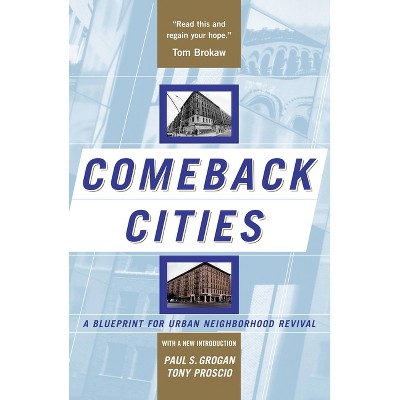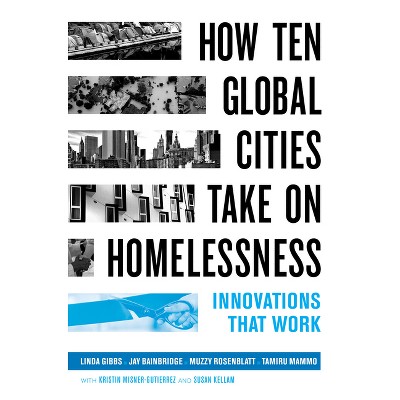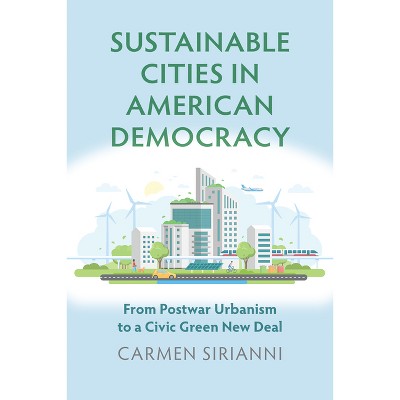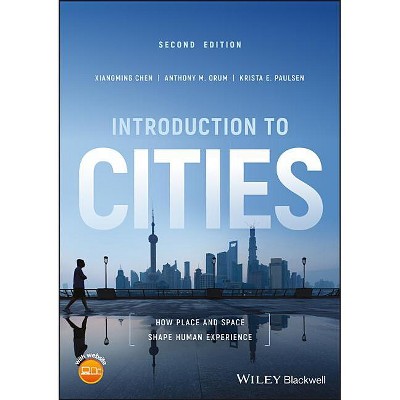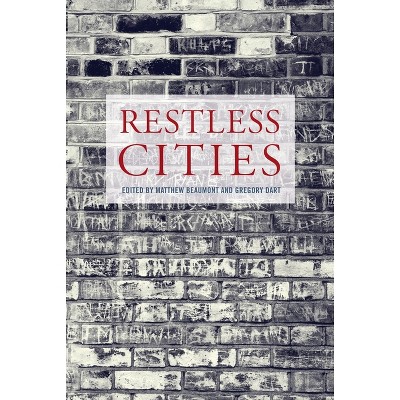Sponsored

The Problem with Feeding Cities - by Andrew Deener (Paperback)
In Stock
Sponsored
About this item
Highlights
- For most people, grocery shopping is a mundane activity.
- About the Author: Andrew Deener is associate professor of sociology at the University of Connecticut.
- 328 Pages
- Social Science, Sociology
Description
About the Book
"For some, grocery shopping is an activity woven seamlessly into daily life. They make lists of foods they enjoy preparing and eating throughout the week, stopping by a market where we seek out the best deals and freshest foods among the broad range of items on display. However, access to this abundance is wildly unequal. Many Americans make long commutes to seek out affordable food, visiting corner stores for dry goods and distant markets for fresh fruits, vegetables, and meats. Poor people, and especially people of color, have significantly less access to the affordable bounty of large grocery stores. The Problems with Feeding Cities charts the massive infrastructures and systems that make it possible to consistently buy a wide range of groceries in one place for an affordable price and the communities that have been left behind in this food revolution. Tracing the growth of technologies including bar codes and storage facilities, networks such as distribution chains and transit systems, and social organizations including food banks and farmers markets, this book illuminates the long social history of today's urban food deserts. The unequal distribution of food and resources is closely linked to the rise and explosive growth of American cities, and the infrastructures that accompanied them affect us still"--Book Synopsis
For most people, grocery shopping is a mundane activity. Few stop to think about the massive, global infrastructure that makes it possible to buy Chilean grapes in a Philadelphia supermarket in the middle of winter. Yet every piece of food represents an interlocking system of agriculture, manufacturing, shipping, logistics, retailing, and nonprofits that controls what we eat-or don't. The Problem with Feeding Cities is a sociological and historical examination of how this remarkable network of abundance and convenience came into being over the last century. It looks at how the US food system transformed from feeding communities to feeding the entire nation, and it reveals how a process that was once about fulfilling basic needs became focused on satisfying profit margins. It is also a story of how this system fails to feed people, especially in the creation of food deserts. Andrew Deener shows that problems with food access are the result of infrastructural failings stemming from how markets and cities were developed, how distribution systems were built, and how organizations coordinate the quality and movement of food. He profiles hundreds of people connected through the food chain, from farmers, wholesalers, and supermarket executives, to global shippers, logistics experts, and cold-storage operators, to food bank employees and public health advocates. It is a book that will change the way we see our grocery store trips and will encourage us all to rethink the way we eat in this country.Review Quotes
"Sociologists with interests in food, urban studies, and politics will find The Problem with Feeding Cities to be a helpful resource for many years to come. Any evolution of our food distribution system that expands beyond today's supermarket model (e.g., home delivery) will require new infrastructure to succeed. Deener's framing of the problem of getting food to people will help us keep track of the ways industry and government mutually adapt to stock the household pantries of the future."-- "American Journal of Sociology"
"Andrew Deener's fascinating book represents an important contribution to the sparsely populated field of social studies of food infrastructure. . . . The Problem with Feeding Cities represents an ambitious attempt to unpack the black box of fresh food provisioning in the United States and theorize the role of food infrastructure in shaping the contemporary city. . . .[It] reveals the importance of understanding what stands between the proverbial farm and table in terms of crafting policies and theories that can adequately confront the 'problem with feeding cities.'"
-- "Gastronomica"
"The Problem with Feeding Cities is a tour de force in its examination of the logistical and supply chain effects on our food system...[It] is a valuable book for those interested in food insecurity and organizational sociology." -- "Sociological Forum"
"Deener urges us to think of food as similar to other goods, [such as] electricity [and] housing that changed dramatically in the twentieth century. He does an excellent job taking the reader on the trip--by boat, by railroad, long haulers, and cars--to see how food gets from point A to point B (with a lot of other points in-between)...Changes in food distribution in the twentieth century led to much of the infrastructural decay we see in US cities in the 21st century and exacerbated food inequalities that we still see today."
-- "Urbanities: The Journal of Urban Ethnography""What is singularly insightful about this volume is that it disaggregates the food system, showing how supplying cities with grains or meats, about which much has been written...is quite different from feeding cities fresh fruits and vegetables...[Deener] underlines the epistemic consequences of separating rural sociology from urban sociology and a sociology of production from a sociology of consumption, with the ties between the two falling out of analytical view. That sets his task for the rest of the book, which includes exemplary chapters on technologies and techniques of classifying uneven organic material."
-- "City & Community""We take food for granted--that it will always be on the shelf, mostly affordable, and safe to eat. Andrew Deener no longer takes the food supply for granted and in this book, using the City of Philadelphia as a case study, examines the high-volume, high-variety food system on which the U.S. relies."-- "CHoW Line"
"...a major addition to the literature on food infrastructure history and analysis."-- "Civil Engineering Magazine"
"The Problem with Feeding Cities is a masterpiece of sociological imagination, making the familiar grocery store aisle into a strange concoction of methyl bromide and Universal Product Codes. Deener narrates the 'social life of infrastructure' over a century of history and with a remarkable variety of foodstuff examples. This book is a model of urban, economic, organizational, and environmental sociology."--Mary Pattillo, author of Black on the Block
"Most of us give little thought to the question of how our food gets to the grocery store, or of how and why this matters. But Deener has spent years investigating the hidden infrastructure that shapes what we grow, what we eat, what we spend, and, most surprisingly, how we've built cities, suburbs, and transit networks around the world. The Problem with Feeding Cities is a revelatory study, loaded with ideas about how to create healthier, more sustainable systems for our changing world."--Eric Klinenberg, author of Palaces for the People and Heat Wave
"This is the food chain fully traced and newly understood. We learn how grocery companies, road builders, and bar codes have shaped cities and fields--and what goes in our mouths. Deener combines politics, technology, and taste for lessons in urban history, consumption, and the wiles and woes of business. He brings the concept of infrastructure to explanatory life."--Harvey Molotch, author of Where Stuff Comes From
About the Author
Andrew Deener is associate professor of sociology at the University of Connecticut. He is the author of Venice: A Contested Bohemia in Los Angeles, also published by the University of Chicago Press.Shipping details
Return details
Frequently bought together
Trending Non-Fiction












